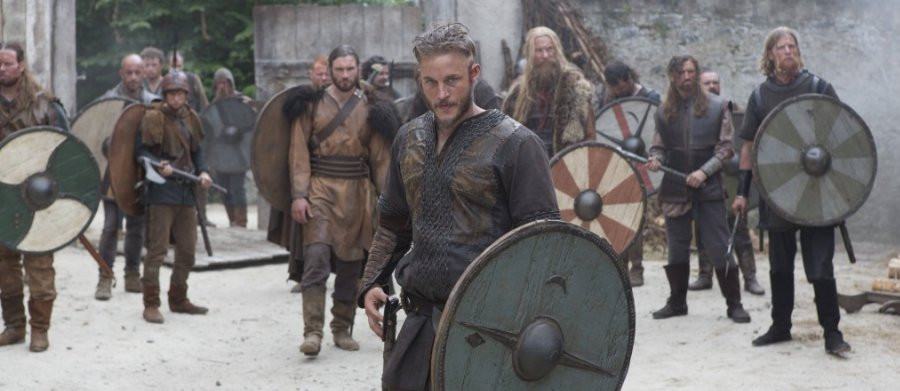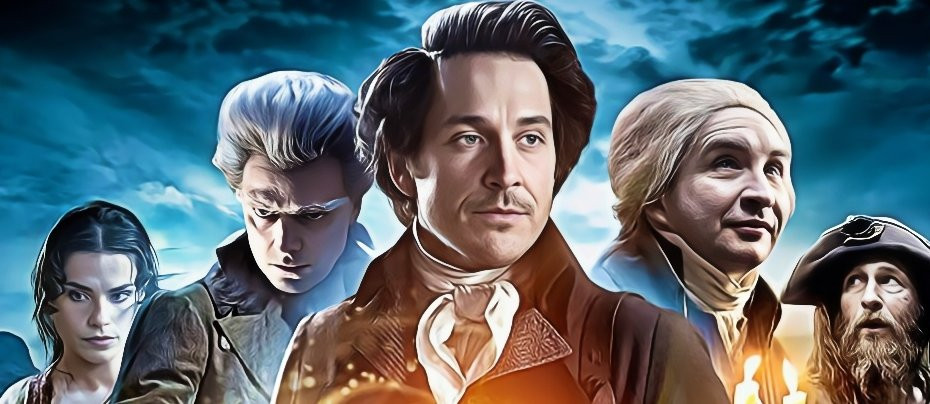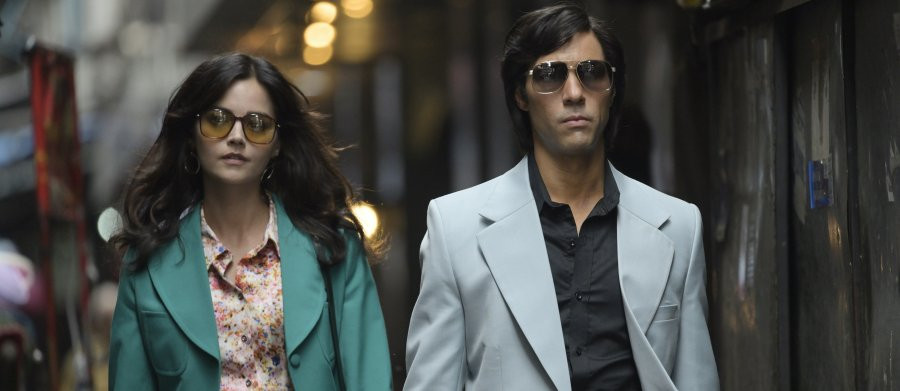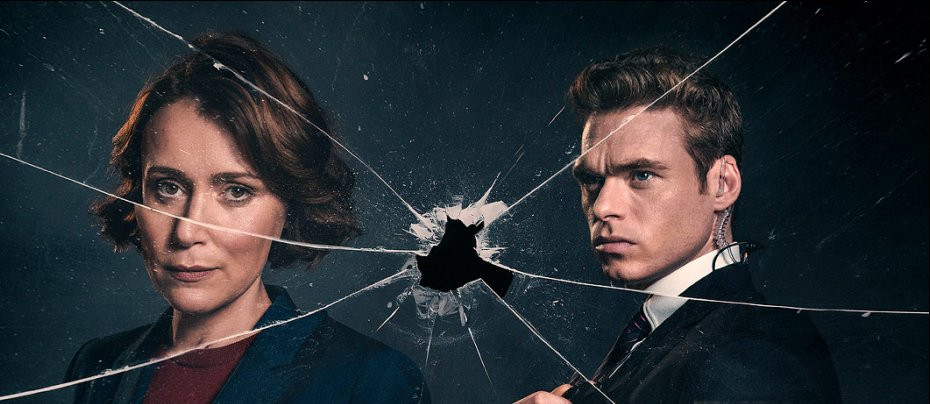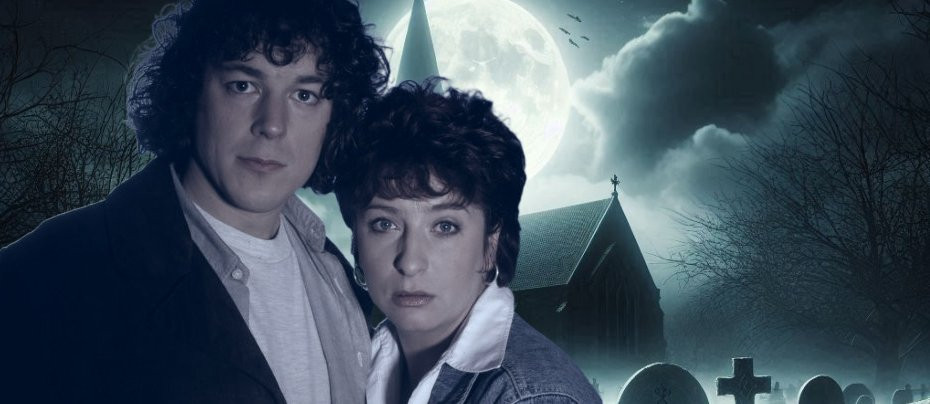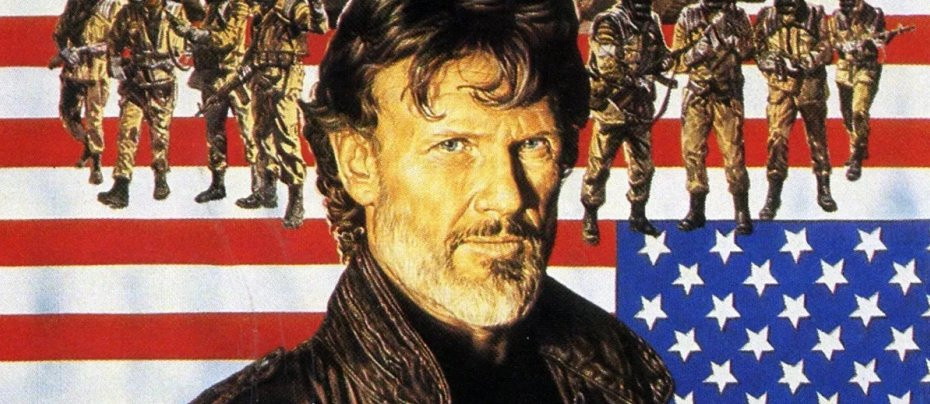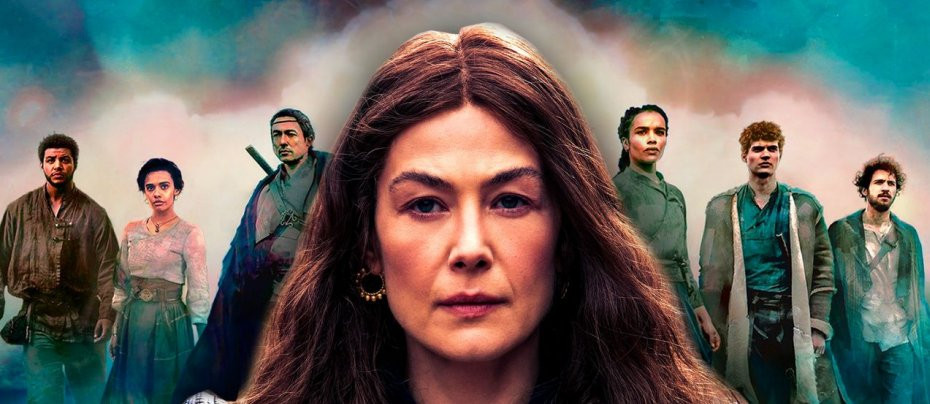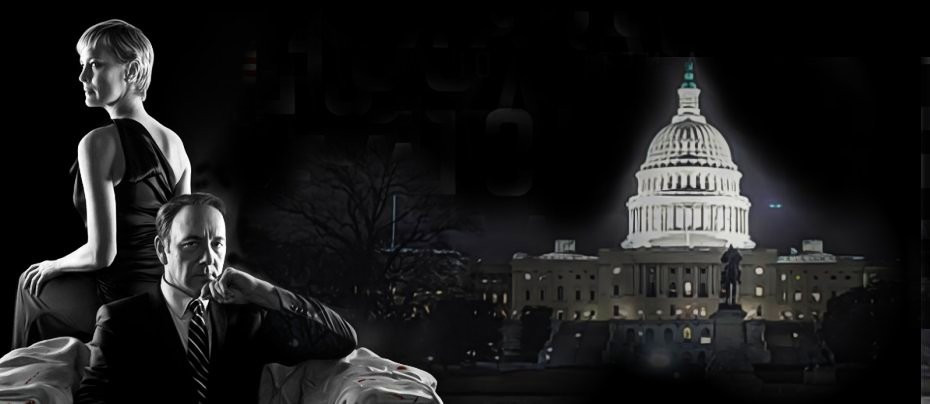
Peaky Blinders
2013 - United Kingdom‘The whole thing is a triumph of style over substance’
Peaky Blinders review by John Winterson Richards
Categorised as historical drama, Peaky Blinders is certainly dramatic, even if it is questionable as history. The modern soundtrack should have been an immediate clue. It gives the production a real jolt of electricity from the start but also serves to warn the viewer that all this has little to do with Interwar Birmingham, the supposed setting.
The whole thing is a triumph of style over substance. Triumph it undoubtedly was. It was one of those programmes which had a cultural impact out of all proportion with its actual viewing figures. The hitherto poorly regarded Brummagem accent was suddenly sexy. "By Order of the Peaky Blinders" became something of a popular catchphrase. The British criminal underworld was undeservedly "cool" at last.
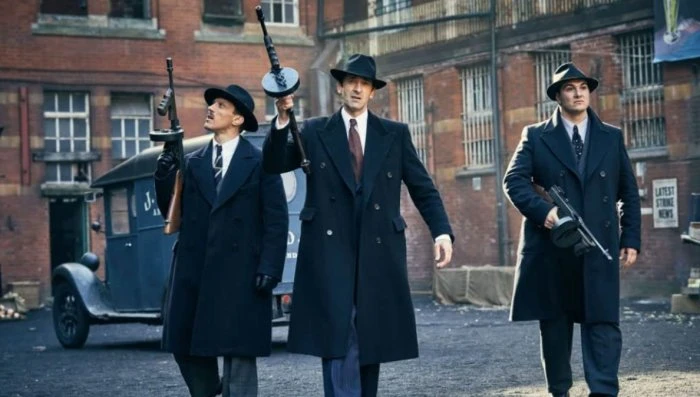
A secret yearning for that to happen may have been one of the reasons for the show's success. Britain has always had a bit of an inferiority complex about not having stylish gangsters, in fact or in fiction, as they seem to have in America, Italy, and France. Although films such as Gangster No.1 sometimes try to give them a touch of superficial glamour, and the reputations of the likes of the Kray Brothers are exaggerated to make them seem more formidable than they were, British criminals have always come across as a bit naff. British "organised crime" was never properly organised and there has been little effort in film or television to disguise the almost universal truth that career criminals become criminals because they are losers.
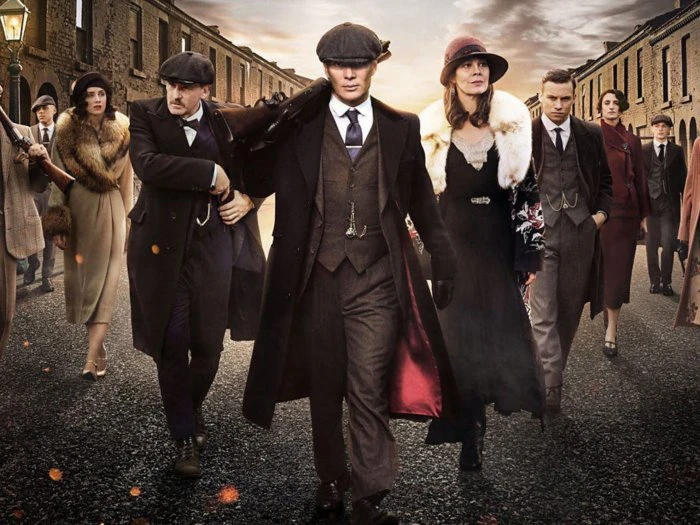
The aesthetic of Peaky Blinders seems to owe more to American gangster films, Spaghetti Westerns, and Italian neorealist cinema than the reality of its purported time and place. Sergio Leone's Once Upon a Time in America and Francis Ford Coppola's The Godfather Saga appear to have been particularly strong influences.
The fact is that Birmingham in the 1920s and early 30s was the direct opposite of a Wild West town. It was a well established, highly structured, generally prosperous community with intense civic pride and greater social cohesion than many parts of Britain today. People of all classes tended to value respectability, religion, and aspiration. It was, above all, a law abiding place, and, while there was some municipal corruption, it was far from endemic. Like most major British cities, it had its traditional "rough areas" where the Police were sometimes more pragmatic, but even these were far from lawless and the inhabitants understood that there were boundaries, both geographic and practical.
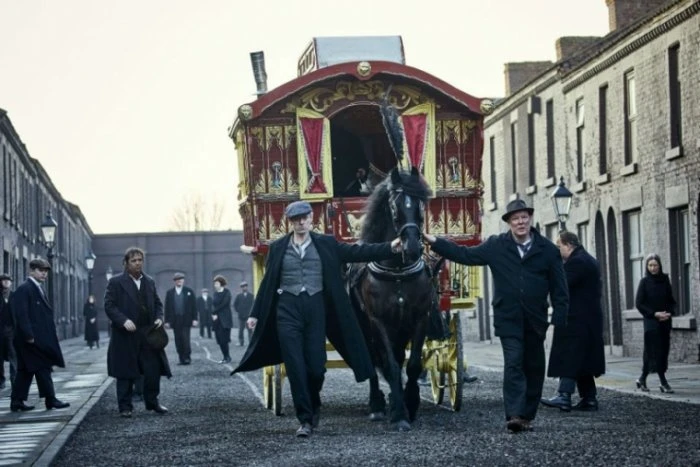
This matters because, perhaps more than ever, the prejudices of the present are products of the mythologies of the past. A myth is not necessarily a fable, a made up story - on the contrary, it might be true or be based on truth - but it is the way a story is told. The way the story is told in Peaky Blinders is dangerously misleading. For example, it is accurate in its depiction of the great unrest during the slumps immediately following the end of the Great War and later the Wall Street Crash, but these were not typical of the time and place - on the contrary, most people were discontented precisely because they were otherwise accustomed to a rising standard of living. The decade and a half covered by Peaky Blinders was not a prolonged period of relentless despair. The defining politicians in the English Midlands at this time were not, as Peaky Blinders implies, the Communist Jessie Eden (who got less than 5% of the vote when she stood for Parliament) and the Fascist Sir Oswald Mosley (who sat briefly for a Midlands seat for Labour and won nothing thereafter) but Stanley Baldwin and Neville Chamberlain (who both sat for Midlands seats where they had very strong local connections).
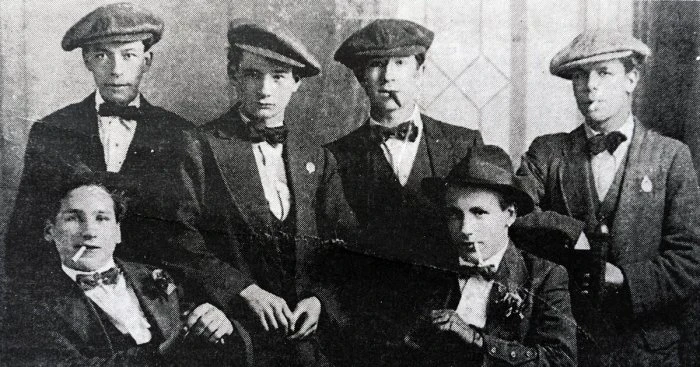
A sprinkling of fact gives Peaky Blinders the illusion of truth. The Peaky Blinders did exist, but in Victorian times, over a generation before the period in which the show is set. They were a street gang, little more than a youth gang, not a serious criminal enterprise. Their name is derived from their peaked caps and their habit of buying fancy clothes that looked "blinding," in the sense of dazzling, rather than a habit of sewing razor blades into their caps to use as weapons. Indeed, even when British crime rates were much higher than today, there was a general aversion here to reliance on offensive weapons. Peaky Blinders puts American style shootouts on the streets of Birmingham, complete with a Lewis gun, when the truth is that gun crime was very rare in Britain for most of the 20th Century - despite weapons, including war surplus firearms, being much easier to obtain, legally and illegally, than they are now and a large proportion of the population being combat veterans trained to use them in the aftermath of both World Wars.
Billy Kimber and Darby Sabini were real life criminals, but nothing like as powerful as they are in Peaky Blinders. Since there was no Prohibition in Britain, there was none of the politically protected gangsterism that was allowed to flourish is the wake of that ill-conceived social experiment in the United States. In one respect, however, Peaky Blinders pulls its punches: if it seems unlikely that President Franklin D Roosevelt would send an envoy to Britain who had Mob connections and sympathy for Fascism, a few years later he did just that, but Peaky Blinders gives the character a different name. The real-life Ambassador on whom the character appears to be based was Joseph P Kennedy, father of a future President.
Since few people actually study history, most get their impressions of it from shows like Peaky Blinders and that impacts on turn on their view of the real world. Historical inaccuracy is therefore a serious matter, especially when dealing with controversial recent history.
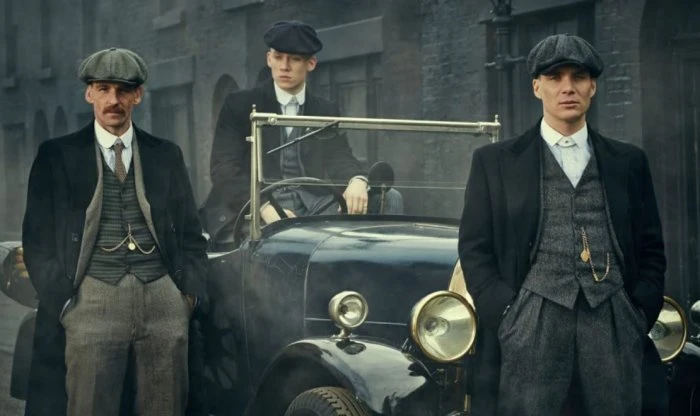
Quite apart from its historical inaccuracies, the basic plot of Peaky Blinders is absurd and gets more so. While it is not wholly unknown for a street tough to rise to a degree of affluence and even middle-class respectability, it is unusual and it rarely lasts - and for such a character to go on to national political influence in that particularly class conscious time and place was beyond contemplation. The producers wanted a working class hero defying the Establishment, and it is a pity that they invented one who could not possibly exist when plenty of real life models are available, both self-made entrepreneurs and social reformers.
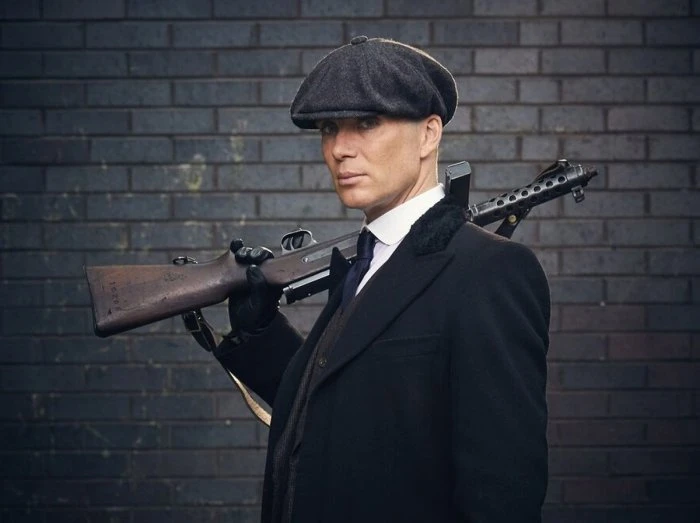
That said, Thomas "Tommy" Shelby, OBE, DCM, MM, MP is a well constructed character if ever there was one. Born of gypsy stock - it is unclear if this means Romani or Irish Traveller - he is raised in great poverty. He is therefore a hard man before being hardened even more by service as a tunneller in the Great War. A natural warrior, he is decorated and promoted to Sergeant Major, but his experiences leave him with what would now be diagnosed as Post Traumatic Stress Disorder (PTSD). Back on the streets, he is himself a deeply buried mine waiting to explode. An apparently total indifference to life makes him a nihilist and immune from normal fear, so he feels no restraint as resentment of the Establishment drives him to rise to the top. He is an avowed atheist, but an odd combination of superstition and socialism takes the place of religious faith. Although his own business practices and lavish personal expenditure could be a cartoon illustration of the worst excesses of the most extreme form of capitalism, he seems to view left wing politics as a possible source of a secular substitute for absolution. It is never entirely clear how sincere he is in this - or if he really knows himself.
It is interesting to imagine how the character might have developed if he had been played by Jason Statham, the original first choice, but is now difficult to visualise anyone but Cillian Murphy in the role. Murphy throws everything into it, so that one begins to wonder how much is the actor and how much the character. If he lacks Statham's physicality, he exudes an otherworldliness that is in many ways more menacing. One can understand why this is a man of whom other men are instinctively nervous and to whom women are attracted in spite, or perhaps because, of every possible danger signal in the book.

Probably the greatest tribute to Murphy is that he still dominates even in the presence of the late, great Helen McCrory in what might be her signature role. Polly is the undisputed matriarch of the Shelby clan - despite being Tommy's aunt rather than his mother. She ran the family's business while he was at war and enjoyed doing things her way. Since she brought Tommy up to be strong, it is inevitable that the two clash. At the same time, she is fiercely loyal to the family, setting up an internal conflict, between this loyalty and her personal feelings, as well as the external conflict with Tommy, and then the even broader conflict between the Shelby's and the rest of the world.
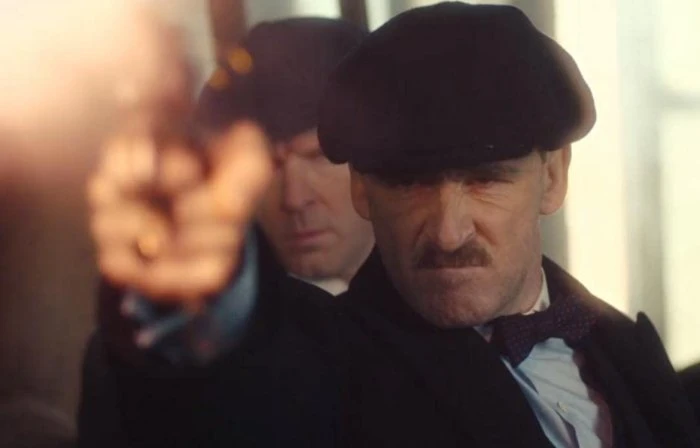
The third most important member of the family is Tommy's brother Arthur, a perpetually angry, rasping hard man's hard man played by Paul Anderson - enjoying himself enormously it seems. He is the sort of chap one would avoid offending if one met him down the pub in real life not because he is physically imposing but because he gives the impression of being barely in control of himself at the best of times and having no limits if he suddenly goes ever the edge. The drink and drugs do not help. A superficial acceptance of Christianity does - but not for long. In spite of his deserved reputation as a dangerous enforcer, and the fact that he is the older brother, Arthur defers to Tommy, who is by far the more intelligent of the two - indeed, the only one with anything more than constant barely suppressed rage in his brain.

They were given a worthy adversary in the first two seasons in the form of Sam Neill as Chief Inspector Campbell, a ruthless Ulsterman brought in by the young Winston Churchill, no less, to clean up Birmingham. Although now New Zealand's leading actor, Neill was in fact born and raised in Ulster: the story goes that he enlisted the help of Liam Neeson and James Nesbitt to recover his childhood accent for the part, and was so successful that he actually had to tone it down a bit. Although the character is fictional, he is apparently based on a Victorian Irish detective - Northern Ireland not yet being a thing at that point - who was brought in to deal with the original Peaky Blinders, and, later, in the time when the fictional series is set, there was no shortage of hardened former "Black and Tans" who would have shared Campbell's attitudes.
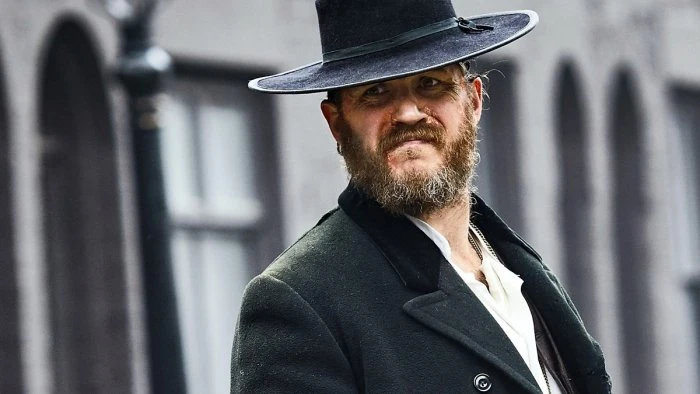
Neill is missed in later seasons but they are at least enlivened by Tom Hardy going deliciously over the top as Jewish ganglord Alfie Solomons, a highly entertaining combination of Fagin with Tevye from Fiddler on the Roof. As with many characters in Peaky Blinders, we never quite make up our minds if he is a total psychopath or mildly psychopathic or just pretending to be for business purposes. The probability that such a man would in reality be very unpleasant did not stop the character becoming very popular, thanks mainly to his eccentric philosophy and dry sense of humour, and it seems the producers kept bringing him back more often than originally intended. Hardy is a versatile actor unafraid of risk: with Alfie he risked big and it paid off big.

Annabelle Wallis is an unfeasibly stunning mysterious barmaid for whom the supposedly emotionless Tommy starts developing strong emotions - quite understandably. Wallis does what the part demands, which, to be honest, is to do little more than look stunning, but one cannot help feeling that these two characters have little in common apart from the fact that they are both extraordinarily good looking.
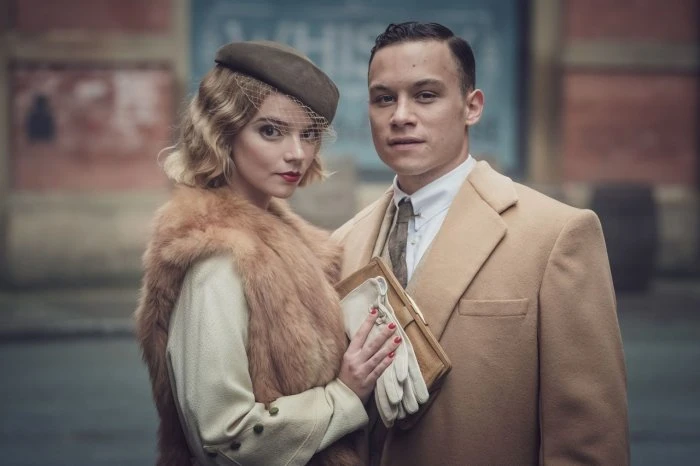
Other familiar faces include Adrien Brody, Paddy Considine, Stephen Graham, Aidan Gillen from The Wire and Game of Thrones, Tommy Flanagan from Sons of Anarchy, Alexander Siddig from Star Trek Deep Space Nine, and Anya Taylor-Joy, who shot her first season of Peaky Blinders shortly before her big breakthrough in The Queen's Gambit. Poet Benjamin Zephaniah turns up frequently as a former soldier turned street preacher - and a helpful reminder that there were indeed black people in the Black Country by this time and quite a lot of black soldiers in the British Army in the Great War.
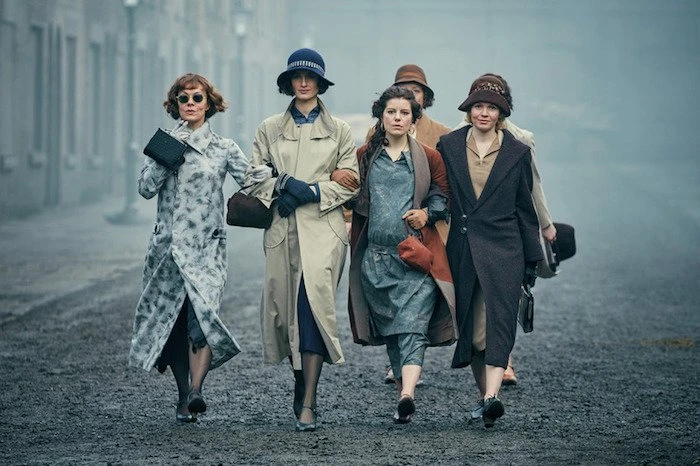
The strength in depth of the cast, and the memorable leading performances in particular, are the great redeeming features of Peaky Blinders. If one stopped to think about it for a moment, one would realise how ridiculous it is that Birmingham is turned into Chicago, but one is so mesmerised by Murphy that one never stops to consider it all seriously. One is simply carried along by his Shakespearean tale of a tragic hero whose great deeds are undermined by his own inner weaknesses.
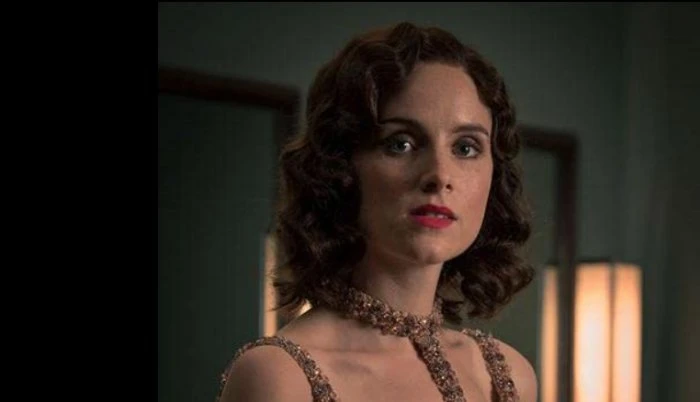
In this sense, the ending is far from satisfactory, but a feature length sequel film is apparently on the way to wrap everything up. One can only hope that, given the show's attitude to history, this does not involve World War Two being prevented when Adolf Hitler is assassinated "by Order of the Peaky Blinders." There are people out there who would believe it.
Related article: Peaky Blinders – Series one
Seen this show? How do you rate it?
Seen this show? How do you rate it?
Published on April 20th, 2022. Written by John Winterson Richards for Television Heaven.



